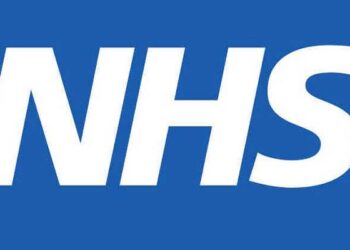Eisai Co Ltd announced that its U.S. subsidiary Eisai Inc. has received approval from the U.S. FDA for an additional indication for Eisai’s in-house developed novel anticancer agent Lenvima® (lenvatinib mesylate) in combination with everolimus for the treatment of patients with advanced renal cell carcinoma following one prior anti-angiogenic therapy.
This is the only combination regimen to significantly prolong progression-free survival (PFS) when compared with a standard of care in patients with advanced renal cell carcinoma following prior anti-angiogenic therapy. Lenvima was designated as a Breakthrough Therapy by the FDA and also received a Priority Review, with approval obtained approximately six months after application submission.
The approval was based on a Phase II clinical study (Study 205)1 that compared the safety and efficacy of Lenvima alone, and in combination with everolimus, in patients with unresectable advanced or metastatic renal cell carcinoma following one prior vascular endothelial growth factor-targeted therapy.
From the results of the study, the group who received the combination of Lenvima plus everolimus demonstrated a significant extension in PFS, the study’s primary endpoint, as well as a higher objective response rate compared to the everolimus alone group. The most common treatment-emergent adverse events (TEAEs) reported in the lenvatinib plus everolimus group were diarrhea, decreased appetite and fatigue. The most common TEAEs of Grade 3 or higher were diarrhea, hypertension and fatigue.
The number of patients with kidney cancer in the United States is estimated to be approximately 58,000,2 and renal cell carcinoma comprises more than 90% of all malignancies of the kidney.3 For advanced or metastatic renal cell carcinoma that is difficult to treat with surgery, the standard treatment is molecular targeted drug therapy, however with low 5-year survival rates, this is a disease with significant unmet medical need.
Lenvima was first approved for the treatment of locally recurrent or metastatic, progressive, radioactive iodine-refractory differentiated thyroid cancer in the United States in February 2015, and has since been approved for thyroid cancer in over 40 countries including Japan, in Europe, South Korea and Canada. A new drug application seeking approval for an indication covering advanced or metastatic renal cell carcinoma submitted in Europe in January 2016 is under review, and Eisai intends to discuss further steps regarding submission strategies for this potential indication with the regulatory authorities in Japan as well. Furthermore, Eisai is conducting clinical studies of Lenvima in several other tumor types including a Phase III study of the agent in hepatocellular carcinoma.
Through this additional approval, Eisai is committed to maximizing the clinical value as well as exploring the potential clinical benefits of Lenvima in order to address the diverse needs of, and further contribute to, patients with cancer and their families.
Media Inquiries:Public Relations Department,
Eisai Co., Ltd.
+81-(0)3-3817-5120
1. About Lenvima (lenvatinib mesylate)
Lenvima is an orally administered multiple receptor tyrosine kinase (RTK) inhibitor with a novel binding mode that selectively inhibits the kinase activities of vascular endothelial growth factor (VEGF) receptors (VEGFR1, VEGFR2 and VEGFR3) and fibroblast growth factor (FGF) receptors (FGFR1, FGFR2, FGFR3 and FGFR4) in addition to other proangiogenic and oncogenic pathway-related RTKs (including the platelet-derived growth factor (PDGF) receptor PDGFRα; KIT; and RET) involved in tumor proliferation.
Currently, Eisai has obtained approval for Lenvima as a treatment for refractory thyroid cancer in over 40 countries including in the United States, Japan, Europe, Korea and Canada, and is undergoing regulatory review throughout the world including in Asia, Russia, Australia, Brazil and Mexico. Specifically, Eisai has obtained approval for the agent indicated in the United States for treatment for locally recurrent or metastatic, progressive, radioactive iodine-refractory differentiated thyroid cancer, in Japan for the treatment of unresectable thyroid cancer, and in Europe for the treatment of adult patients with progressive, locally advanced or metastatic differentiated (papillary, follicular, Hürthle cell) thyroid carcinoma (DTC), refractory to radioactive iodine, respectively.
Lenvima is now also approved for an additional indication in the United States in combination with everolimus for the treatment of patients with advanced renal cell carcinoma following one prior anti-angiogenic therapy. A new drug application seeking approval for an indication covering advanced or metastatic renal cell carcinoma submitted in Europe in January 2016 is under review, and Eisai intends to discuss further steps regarding submission strategies for this potential indication with the regulatory authorities in Japan.
Meanwhile, Eisai is conducting clinical studies of Lenvima in several other tumor types such as hepatocellular carcinoma (Phase III), endometrial carcinoma (Phase II), biliary tract cancer (Phase II), and in combination with an immune checkpoint inhibitor (Phase Ib/II).
2. About the Phase II Clinical Study (Study 205)1
Study 205 was a multicenter, randomized, open-label study of the combination of Lenvima (18 mg) plus everolimus (5 mg), Lenvima alone (24 mg), and everolimus alone (10 mg) in patients with unresectable advanced or metastatic renal cell carcinoma following one prior VEGF-targeted therapy, and was conducted in Europe and the United States. 153 patients were randomized in a 1:1:1 ratio to one of three treatment arms to compare the efficacy and safety of these three regimens.
From the results of the study, the combination of Lenvima plus everolimus group demonstrated a significant extension in the study’s primary endpoint of progression free survival (PFS) compared to the everolimus alone group (median PFS for the Lenvima plus everolimus group: 14.6 months vs median PFS for the everolimus alone group: 5.5 months; Hazard Ratio (HR) 0.40 [95% CI: 0.24-0.68], p=0.0005). Additionally, median PFS for the Lenvima alone group was 7.4 months, demonstrating an extension in PFS compared to the everolimus alone group (HR: 0.61 [95% CI: 0.38-0.98]).
The study also assessed objective response rate (ORR) and overall survival (OS) as secondary endpoints. Regarding ORR, both the Lenvima plus everolimus group and the Lenvima alone group showed an improvement in ORR compared to the everolimus alone group (Lenvima plus everolimus: 43%, Lenvima alone: 27%, everolimus alone: 6%). Furthermore, regarding OS, an updated analysis carried out in December 2014 suggested that Lenvima plus everolimus extends OS compared to everolimus alone (HR 0.51 [95% CI=0.30-0.88]).
The most common treatment-emergent adverse events (TEAEs) reported in the lenvatinib plus everolimus group were diarrhea, decreased appetite and fatigue. The most common TEAEs of Grade 3 or higher were diarrhea, hypertension and fatigue.
For further information on Lenvima in the United States, including Important Safety Information (ISI), please visit the Lenvima product website (http://www.lenvima.com).
3. About Renal Cell Carcinoma
The number of patients with renal cancer was estimated to be approximately 338,000 worldwide, including approximately 58,000 in the United States, 115,000 in Europe and 17,000 in Japan.2 Renal cell carcinoma comprises more than 90% of all malignancies of the kidney,3 and occurs when malignant cells are found in the lining of the tubules of the kidney. The incidence of renal cell carcinoma in people aged in their late 50s is rising, and is more likely to affect men than women. For advanced or metastatic renal cell carcinoma that is difficult to treat with surgery, the standard treatment method is molecular targeted drug therapy, however with low 5-year survival rates, this is a disease with significant unmet medical need.
1 Motzer, R, et al. “Lenvatinib, everolimus, and the combination in patients with metastatic renal cell carcinoma: a randomised, phase 2, open-label, multicentre trial.” The Lancet Oncology, 2015; 16, 1473-1482.
2 Globocan 2012: Estimated Cancer Incidence, Mortality and Prevalence Worldwide in 2012, http://globocan.iarc.fr/
3 Eble J.N, ed. Pathology and Genetics of Tumours of the Urinary System and Male Genital Organs. World Health Organization Classification of Tumours, 3rd ed. IARCPress, Lyon, 2004.

















